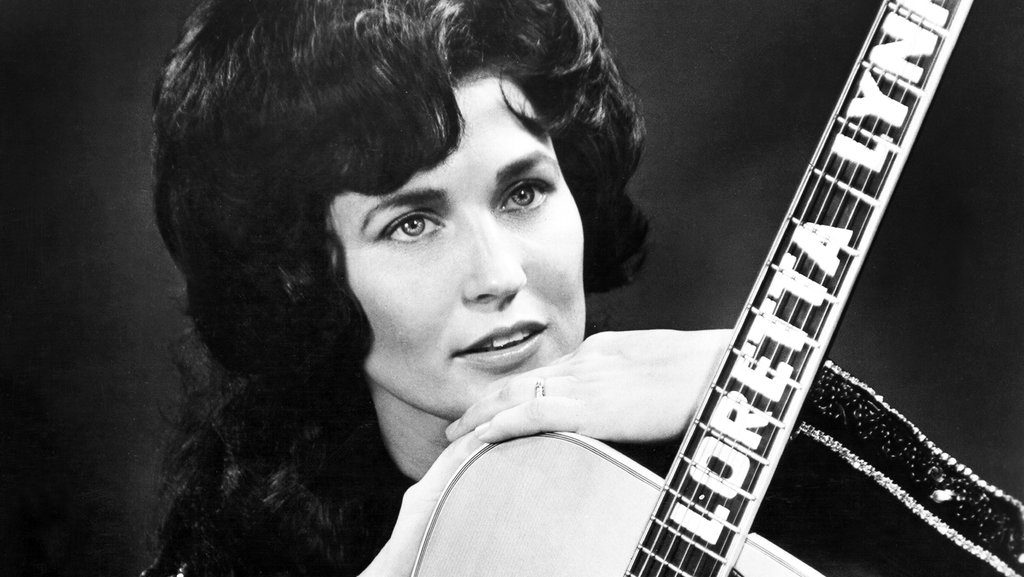I'll give you a taste of the songs by starting off with one of my favorites:
"The Pill" by Loretta Lynn


Definitely listen to this once through just to hear that funky guitar that pairs so well with that classic country vibe. Her sassy lyrics make this a stellar feminist anthem.
Check it out:
https://www.youtube.com/watch?v=5DcdONaKSQM
Here are the lyrics so you can do a close read too:
You wined me and dined me
When I was your girl
Promised if I'd be your wife
You'd show me the world
But all I've seen of this old world
Is a bed and a doctor bill
I'm tearin' down your brooder house
'Cause now I've got the pill
All these years I've stayed at home
While you had all your fun
And every year that's gone by
Another babys come
There's a gonna be some changes made
Right here on nursery hill
You've set this chicken your last time
'Cause now I've got the pill
This old maternity dress I've got
Is goin' in the garbage
The clothes I'm wearin' from now on
Won't take up so much yardage
Miniskirts, hot pants and a few little fancy frills
Yeah I'm makin' up for all those years
Since I've got the pill
I'm tired of all your crowin'
How you and your hens play
While holdin' a couple in my arms
Another's on the way
This chicken's done tore up her nest
And I'm ready to make a deal
And ya can't afford to turn it down
'Cause you know I've got the pill
This incubator is overused
Because you've kept it filled
The feelin' good comes easy now
Since I've got the pill
It's gettin' dark it's roostin' time
Tonight's too good to be real
Oh but daddy don't you worry none
'Cause mama's got the pill
Oh daddy don't you worry none
'Cause mama's got the pill
So, back to the big idea. What makes this funny? To put it plainly, women have had it up to here (insert elevated hand gesture) with the patriarchal oppression! By using creative language devices such as sarcasm and irony to talk about gender issues through humor. The culmination of ideas that have influenced one generation after another by rejecting or pointing out flaws in our perceived norms. The more we listen, the more we can focus on evidence of feminism, socially mandated roles, and conflicts in the human condition, that we conveniently express in a variety of mediums that integrate themes, positions, and ideas into things that we consume for fun.
What makes Loretta's song just so awesome is that it was banned for the radio when it was released in 1975, but Loretta got the last laugh. This song celebrates birth control and all the freedom it offers to married women who don't want or can't afford another baby. Right up there with “You Don’t Own Me” by Lesley Gore, “Think” by Aretha Franklin and “I Will Survive” by Gloria Gaynor, this song is evidence of badass women making a statement before it was cool. In the 1970s subjects such as women's sexuality, desire, and control over their own bodies were heavily scrutinized, but considered taboo to be discussed in public. So for Loretta to belt these defiant lyrics way before Carrie Underwood took a Louisville Slugger to both headlights. The topic of birth control itself is controversial because it opens opportunities for women to gain employment, support children financially, have a little bit of stability, and not have to risk death during childbirth from frequent pregnancies. Still, this is one of Loretta's most popular songs and is remembered for its feminist contributions. While the song may have been banned from the radio, I guess Loretta still had the last laugh.
Great post! I've loved your music writing all semester, Kelsey.
ReplyDeleteI love this! Everything you write about music is so fascinating and beautiful.
ReplyDeleteYour music writing over the semester has been so cool. This is a Loretta Lynn song I wasn't familiar with, but thanks for putting me on. I'm excited to see the rest of your project.
ReplyDeleteShe really is an interesting county artist for her time. Some other songs of hers you could consider feminist jams include You Ain't Woman Enough and Don't Come Home A-Drinkin' (With Loving On Your Mind)
DeleteThe work that Loretta Lynn is doing with this song is very interesting. Whenever you think of country music today, it is predominately VERY sexist. The lyrics almost always include something to the effect of, "Gurrrrl, you look so good in yer dixie shorts, ridin' that tracterrrr, yeahhh." Loretta's lyrics, however, reference feminist ideas, which you could say was "before her time" and contrary to the typical country song's content.
ReplyDelete